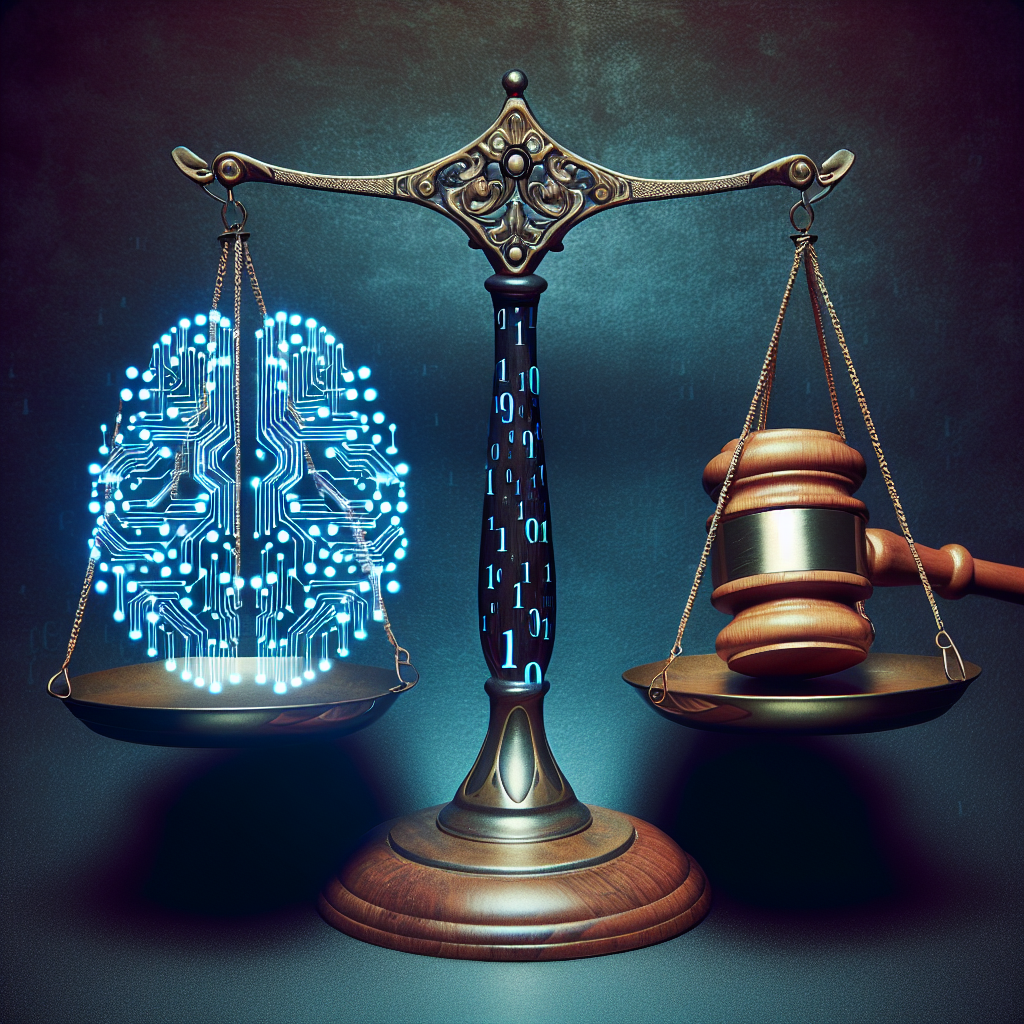Artificial intelligence (AI) has become increasingly prevalent in various aspects of our lives, including legal decision-making. From predicting the outcome of cases to assisting in document review, AI has the potential to revolutionize the legal industry. However, with this potential comes a host of ethical considerations that must be carefully navigated.
The use of AI in legal decision-making raises important questions about transparency, accountability, and fairness. These concerns are particularly pronounced when AI systems are used to make decisions that have a significant impact on individuals’ lives, such as in the case of sentencing decisions or bail determinations. In order to ensure that the use of AI in legal decision-making is ethical, it is crucial to carefully consider these issues and take steps to address them.
One of the key ethical considerations in the use of AI in legal decision-making is transparency. AI systems can be highly complex and opaque, making it difficult for individuals to understand how decisions are reached. This lack of transparency raises concerns about accountability and fairness, as individuals may not be able to challenge decisions or understand the reasoning behind them.
To address these concerns, it is important to design AI systems in a way that promotes transparency. This can be done by providing explanations for decisions, ensuring that individuals have access to information about how AI systems work, and allowing for review and appeal of decisions made by AI systems. By promoting transparency, we can help to ensure that the use of AI in legal decision-making is fair and accountable.
Another important ethical consideration in the use of AI in legal decision-making is bias. AI systems are trained on data, and if that data is biased, the decisions made by AI systems may also be biased. This can have serious implications for individuals, particularly those from marginalized or disadvantaged communities who may already face systemic bias in the legal system.
To address bias in AI systems, it is important to carefully consider the data used to train these systems and take steps to mitigate bias. This can include using diverse and representative data sets, testing AI systems for bias, and implementing mechanisms to correct bias when it is identified. By addressing bias in AI systems, we can help to ensure that the decisions made by these systems are fair and equitable.
In addition to transparency and bias, there are a number of other ethical considerations that must be taken into account when using AI in legal decision-making. These include issues related to privacy, security, and the potential for unintended consequences. For example, the use of AI in legal decision-making may raise concerns about the privacy of individuals’ data and the security of AI systems. Additionally, there is the potential for AI systems to make errors or produce unintended outcomes, which can have serious consequences for individuals.
To address these ethical considerations, it is important to carefully assess the risks and benefits of using AI in legal decision-making and take steps to mitigate potential harms. This may include implementing robust data protection measures, ensuring the security of AI systems, and developing mechanisms for accountability and oversight. By addressing these ethical considerations, we can help to ensure that the use of AI in legal decision-making is responsible and ethical.
In conclusion, the use of AI in legal decision-making has the potential to transform the legal industry and improve access to justice. However, in order to realize this potential, it is crucial to carefully consider the ethical implications of using AI in legal decision-making. By promoting transparency, addressing bias, and taking steps to mitigate potential harms, we can help to ensure that the use of AI in legal decision-making is ethical and responsible.
FAQs:
Q: How is bias addressed in AI systems used in legal decision-making?
A: Bias in AI systems used in legal decision-making can be addressed by carefully considering the data used to train these systems and taking steps to mitigate bias. This can include using diverse and representative data sets, testing AI systems for bias, and implementing mechanisms to correct bias when it is identified.
Q: What are some of the ethical considerations in the use of AI in legal decision-making?
A: Some of the ethical considerations in the use of AI in legal decision-making include transparency, bias, privacy, security, and the potential for unintended consequences. It is important to carefully consider these issues and take steps to address them in order to ensure that the use of AI in legal decision-making is ethical and responsible.
Q: How can transparency be promoted in AI systems used in legal decision-making?
A: Transparency in AI systems used in legal decision-making can be promoted by providing explanations for decisions, ensuring that individuals have access to information about how AI systems work, and allowing for review and appeal of decisions made by AI systems. By promoting transparency, we can help to ensure that the use of AI in legal decision-making is fair and accountable.

